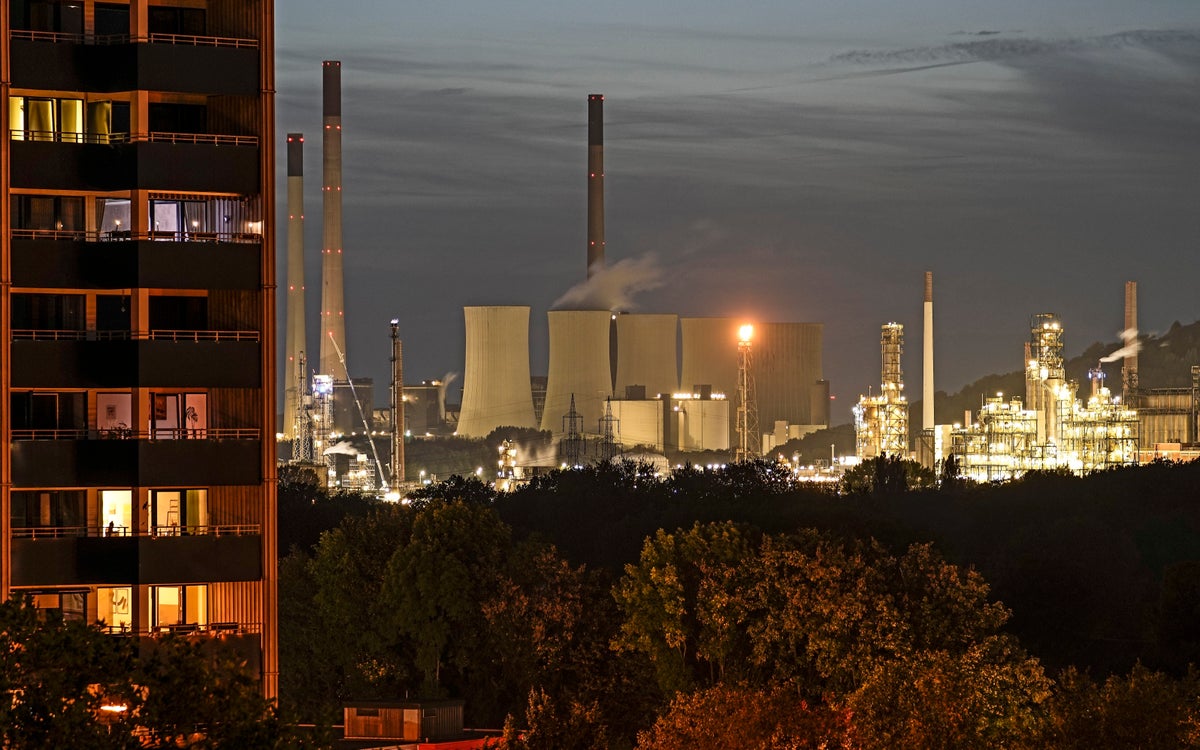
The badges said they were there to participate in negotiations to curb climate change. They stated affiliations like the government of Brazil, Indigenous organizations of the Amazon, the Climate Registry. But in reality, the livelihoods of these participants were more aligned with what’s keeping the problem going: fossil fuels.
Close to 400 people connected in some way or another to fossil fuel industries attended last year’s United Nations’ climate talks in Egypt, a grouping that was larger than all but two of the national delegations sent by countries, according to a data analysis of the more than 24,000 participants by The Associated Press.
As United Nations leaders, scientists and others called for an eventual elimination of coal, oil and natural gas, various delegations included attendees who in some way owed part or all of their paychecks to fossil fuel burning. Many of these same people, and possibly even more connected to fossil fuels, will likely be at this year’s official climate talks, known as Conference of Parties or COP, being hosted by the United Arab Emirates, a major oil producing country.
“There’s outsized influence,” said Center for Biological Diversity’s Jean Su, who sits on the board that represents civil society and environmental groups at these meetings. “These COPs are often wining-and-dining fests for fossil fuel corporations that want to profit off of climate.”
While the presence is palpable—such as oil countries and companies with huge, flashy stands in the trades pavilions—the influence is hard to quantify because much of the negotiating is done behind closed doors.
These annual meetings, which have occurred since 1995, convene in different cities each year. The host city runs the event and sets the agenda. Because the upcoming summit, COP28, is in Dubai, the United Arab Emirates got to choose the president, picking the CEO of its national oil company, Sultan al-Jaber.
As to be expected at a summit focused on the environment, there are many environmental activists, more than 750 last year, by AP’s count. But they say their voices are not being heard, and instead the lobbying of fossil fuel interests are why climate talks have yet to produce an agreement to phase out coal, oil and natural gas, as scientists have repeatedly said must happen to stave off the worst impacts of climate change, like extreme weather events.
WIDE RANGE OF AFFILIATIONS
The AP analyzed the affiliations of attendees of COP27, reviewing details they offered on their badges. Those details were checked against lists of operators and owners of coal mines, oil fields and natural gas plants, as well as manufacturers of carbon-intensive materials like steel and cement.
Attendees in 2022 included top executives of BP, Shell, Equinor and TotalEnergies. The head of the world’s largest oil and gas firm, Saudi Aramco, was at the site on a “sideline” event. And al-Jaber, chief of Abu Dhabi National Oil Company, was also there and will be in charge of this year’s climate negotiations. The operations and products of those companies and others are huge contributors to climate change.
It wasn’t just fossil fuel giants that showed up.
Take Mercuria Energy. The Switzerland-based firm calls itself “one of the world’s largest energy traders,” with 69% of their 2022 traded volumes in oil and natural gas. The firm is also a part-owner in Vesta Terminals, which operates storage terminals that hold crude oil, petroleum products and other liquids, as well as a marine fuels company called Minerva Bunkering.
Mercuria sent six people to the COP in Egypt. Its chief trader, Magid Shenouda, went as part of the Coordinating Body of Indigenous Organizations of the Amazon Basin. Others from Mercuria went as members of delegations for the Brazilian government, the International Chamber of Commerce, the International Emissions Trading Association and Winrock International, a nonprofit that works to help poorer countries with social, environmental and agricultural issues.
Alden Meyer, who has been to all but one COP and is an analyst for the European think-tank E3G, says the big numbers of attendees connected to fossil fuels show these industries see this “either a threat or maybe an opportunity or both for their business,” but the system isn’t set up to tell motives and lobbying efforts.
Meyer says the fossil fuel interests have huge influence over the event, but the influence begins ahead of the talks.
Last year, the U.S. Chamber of Commerce’s Global Energy Institute sent four employees to the summit. Marty Durbin, the institute’s president and former executive of the American Petroleum Institute, says the institute is a “huge” supporter of natural gas and the industry should have a voice in the talks.
“I don’t know why we’re trying to push people away instead of saying, ‘Come in and let’s all work on this together,’” said Durbin, speaking from an oil and gas conference in October in Abu Dhabi.
Su disagrees, saying: “It’s the fox guarding the henhouse and they should not be at the table when it’s governments who have the jurisdiction to regulate.”







